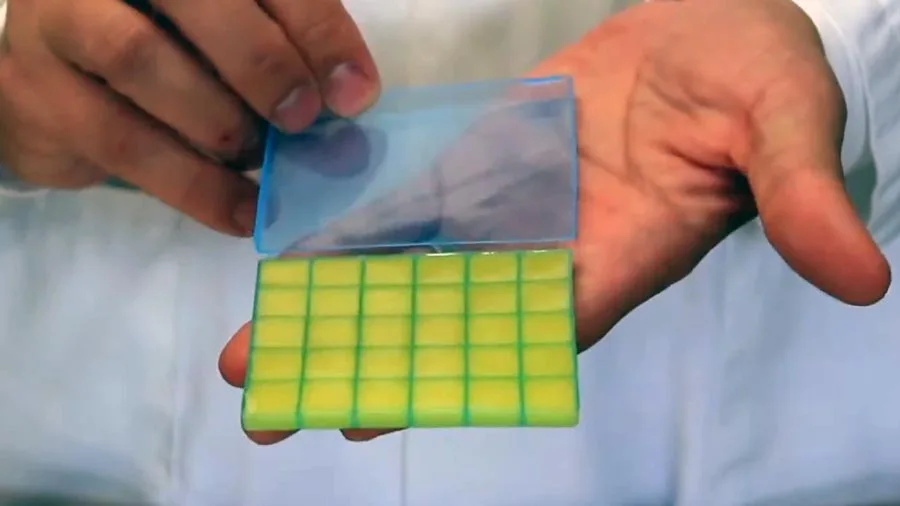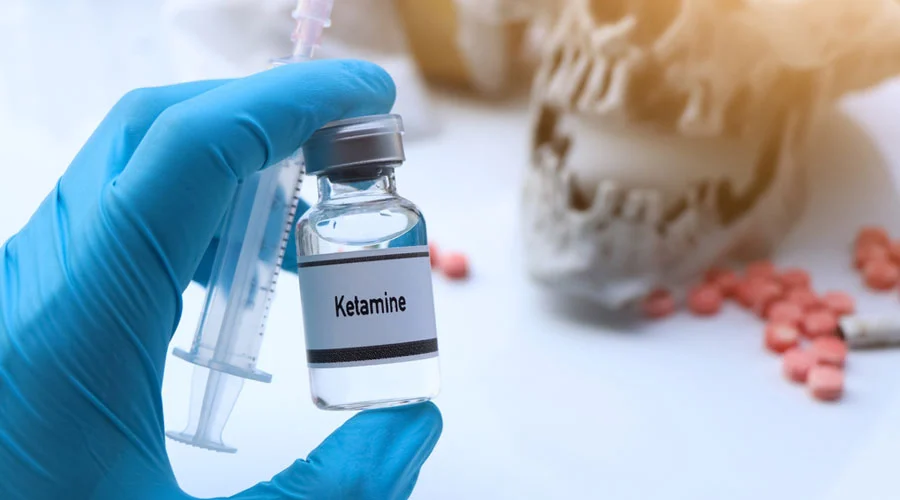Get Answers and Support for Ketamine Abuse at South Shores
In the medical world, ketamine can treat pain and some types of mental illness. For recreational users, though, ketamine offers an easy escape. It produces feelings of euphoria and helps you escape from reality as you melt into the world around you.
With strong effects like this, it’s no surprise that people struggling with pain or mental health might turn to ketamine for help. When dosing ketamine becomes a habit, however, it may leave you wondering, “Are ketamine troches addictive?”
Even though ketamine is not considered as addictive as stimulants like cocaine or opioids, it still has addictive potential. It can be easy to get addicted to how you feel while under the influence, especially if you are trying to escape.
Keep reading to learn more about ketamine addiction, its medical benefits, and alternatives to ketamine use offered at South Shores Detox.
What Are Ketamine Troches?
Ketamine troches are a lozenge dissolved under the tongue. They are commonly used for treating depression, anxiety, and other mental health problems. They may also be used to treat chronic pain with ketamine, as an alternative to medically prescribed opioids or morphine. Even though they can be effective, in this form, troches have high addictive potential.
While ketamine treatment can be effective, more research needs to be done to determine the effective dose and risks of long-term ketamine use. Ketamine troches should only be used by adults and are not approved for all age groups.
What Does Ketamine Feel Like?
People who have done ketamine describe effects ranging from “warm and fuzzy” and a “dream-like” state to an “out-of-body experience” or “melting into the world around you”. Low-dose ketamine produces different effects than high doses of the drug. Ketamine does have benefits for mental health conditions and chronic pain in some cases, often with a lower risk of side effects.
However, the medicine should be administered under close medical supervision and ketamine is not typically recommended for those with prior substance use disorder histories. Ketamine has addictive potential even when prescribed by a doctor, especially with long-term use. Troches are especially addictive because they leave you in charge of dosing yourself. Without monitoring, even the most responsible adults have the potential to become addicted as they use more over time to feel the same effects.
How Does Ketamine Work?
Ketamine treatment works in several ways. Ketamine acts as an antagonist and binds to the NMDA receptor. This blocks glutamate, a neurotransmitter that affects mood regulation. It also strengthens neural pathways in the brain, positively affecting levels of dopamine related to pleasure and happiness.
Your body’s physical response to ketamine and its anesthetic effects happen on a neurological level. Ketamine blocks pain receptors, reduces inflammation, and works in ways that aren’t yet fully understood.
Research shows even low doses of this medicine have positive effects on pain management, though these effects tend not to be long-lasting.
What are the Documented Uses for Ketamine Troches?
Ketamine troches serve a broad spectrum of medical purposes. They are particularly effective in treating chronic pain conditions, including neuropathic pain, complex regional pain syndrome, and peripheral neuropathic pain.
Beyond pain management, ketamine troches are also utilized for mental health conditions such as treatment-resistant depression, anxiety, and post-traumatic stress disorder (PTSD). For patients grappling with chronic non-malignant pain who have not found relief through other treatments, ketamine troches can be a game-changer, offering a new avenue for pain management and mental health support.
Are Ketamine Troches Addictive and Can I Get Addicted to K?
Most people know what it feels like to use substances to escape. It’s pretty common to smoke a cigarette when you’re stressed or have a few drinks after a long day at work. Sometimes, though, this need to escape can lead to much bigger problems.
You can become addicted to ketamine. Even though a large body of research supports ketamine treatment for mental health conditions and for chronic pain instead of opioids, it must be administered with close monitoring. Ketamine troches are typically for at-home use. Chronic pain patients have found ketamine to be effective in managing their pain, with studies highlighting its potential benefits and applications in long-term pain management.
When medical professionals do not closely monitor patients, it’s possible to become dependent on the medication to feel normal. Ultimately, this dependency will lead to addiction.
Many recreational users also find themselves at risk of ketamine addiction. Ketamine is a popular street drug used at clubs and raves. In these situations, high doses are used to induce a dream-like state. Some users also go into a “k-hole”, an experience akin to ‘near-death’ brought on by the way ketamine depresses the central nervous system. When combined with other drugs or alcohol, it also creates a potentially deadly cocktail.
Looking Into the Safety and Efficacy of Ketamine Troches
The safety and efficacy of ketamine troches in treating chronic pain and mental health conditions are well-documented. Research indicates that these troches can significantly alleviate pain and enhance mood in patients with treatment-resistant depression.
However, like any medication, ketamine troches come with potential side effects, including dizziness, nausea, and hallucinations. It is crucial to collaborate with a qualified healthcare provider to tailor the treatment to your needs and monitor for any adverse reactions. This ensures that the benefits of ketamine troches are maximized while minimizing potential risks. If you believe ketamine can help, be sure to find a provider who prescribes them along with the proper oversight to ensure support and minimize side effects.
Ketamine Treatment for Chronic Pain and Mental Health
The Food and Drug Administration (FDA) approved ketamine for use by medical professionals in the 1970s. It is well known for its use in the Vietnam War and is commonly used as an anesthetic during medical procedures on animals and humans. While it is effective at relieving pain, it is a less addictive way to produce the effects of anesthesia than some other alternatives.
Your doctor may prescribe ketamine to treat the medication-resistant form of depression, chronic pain, anxiety, PTSD, or bipolar disorder. Ketamine is also being explored as a neuropathic pain treatment, particularly for managing chronic pain conditions like complex regional pain syndrome and peripheral neuropathic pain.
Even though there are medical benefits, ketamine use has drastically changed in the last two decades. High doses of the drug produce disassociation effects and hallucinations. Ketamine troches, IV ketamine, and powdered ketamine are all available on the street. The club drug is common at raves, but it also may be used by people with untreated mental health conditions.
Unfortunately, if you are using ketamine as an escape, it has a potentially addictive high. It becomes hard to function without the drug and you’ll develop a tolerance over time.
Getting Ketamine Prescribed by a Legitimate Doctor
Mail-order prescriptions are a contributing factor to ketamine being misused. Clients talk to a doctor over Telehealth or another virtual network. These doctors might never meet clients in person. A pain physician, as part of a multidisciplinary approach to managing chronic pain, can collaborate with mental health practitioners to ensure comprehensive management strategies that address both pain relief and psychological support. This makes it impossible to monitor how ketamine is being used and its effectiveness.
Ketamine-assisted psychotherapy can be effective in improving mental health in limited cases. That being said, ketamine troches are not always the most effective course of treatment. They produce a potentially addictive high and negatively impact blood pressure.
Using troches long-term can also cause changes in the brain, negatively affecting memory and leaving you at higher risk of mood disorders, disassociative brain fog, and psychotic episodes.
Ketamine Infusions vs Ketamine Troches
Your body can only use around 25% of the dose of troches, compared to the 100% bioavailability from ketamine infusions. With infusions, low doses are more likely to be effective. Ketamine infusions also do not need to be administered as frequently to have positive effects.
Infusions of intravenous ketamine are administered intravenously, under close monitoring. Often, you’ll have several sessions where the medicine is slowly introduced into your system. These initial ketamine infusions can relieve depression and maintenance sessions may be scheduled monthly. This is a much safer, less habit-forming way of administering the drug to patients.
Intravenous outpatient ketamine infusions have shown potential effectiveness and opioid-sparing effects in patients with high opioid requirements.
Is Ketamine Addictive with a Prescription?
Yes, even when you use prescribed ketamine, you can become addicted. This is true of many prescriptions, including benzodiazepines, opioids, ADHD medication, and morphine. While ketamine is not considered as addictive as opioids or stimulants, it does still have addictive properties. This is especially true when a patient is responsible for administering ketamine themselves, like in the case of ketamine troches. Oral ketamine, used for chronic pain management and depression, also carries potential benefits and risks, including the risk of addiction.
Ketamine troches usually have lower doses of the medication. However, most people develop a tolerance from using any drugs long term. Over time, you may take troches closer together to get the same effect, or increase your dose significantly to get the same effect. These are the signs of potential addiction. It may be time to discuss a medication change with your doctor, regardless of the drug’s effectiveness.
How Do I Know I’m Addicted to Ketamine?
When you’re living in the dream-like state associated with ketamine use, it’s hard to live up to your full potential. Even though ketamine treatment seems to improve mental health issues for some without addiction histories, it is not always the best answer. Some signs that you are becoming dependent on ketamine and require detox include:
- Experiencing confusion or memory loss
- Distorted perception of the world around you
- Fear, paranoia, anxiety, or depression that is worse when you aren’t using
- Inability to focus on work or your home life
- Decreased social interactions when you cannot use ketamine
- Using ketamine regularly to escape pain or mental issues
- Experiencing tremors, restlessness, and sleep disturbances when you don’t have ketamine
- Making dangerous or illegal decisions when high
- Increased tolerance to ketamine and other depressant drugs
- Friends or family members mentioning they are concerned
- Continuing to use significantly higher doses even after experiencing adverse reactions
If several of these things are true, it may be time to consider making a change in your life. Ketamine is not the only answer for chronic pain or mental health problems.
There is Hope if You Have Become Dependent on Ketamine
Ketamine can provide an easy escape from everything going on in your mind. Many people who use ketamine without a prescription start with recreational use. Ketamine also does not show up on many drug tests. From there, however, it is a slippery slope to addiction.
Fortunately, there is hope. Even if you’ve become dependent on ketamine to feel normal, you can learn to live without it. Ketamine relaxes the central nervous system. If you abruptly stop using ketamine after dependency, you’ll likely experience withdrawal symptoms including tremors, irritability, sleep disturbances, anxiety, cravings, and severe depressive effects.
Considering Options for Ketamine Treatment
Rehab facilities like South Shores offer medical detox services during inpatient rehab. You’ll be supervised by medical professionals during detox and medications can be prescribed to make you more comfortable during the withdrawal process. This can be useful for people addicted to ketamine after treating depression, anxiety, or pain.
Inpatient subcutaneous ketamine infusions at a high dose are also used as part of a treatment strategy for chronic non-malignant pain, particularly for patients undergoing opioid detoxification or central sensitization management.
South Shores Detox also offers dual diagnosis treatment programs. Our dual diagnosis programs address addiction and underlying mental health issues like depression, anxiety, or post-traumatic stress disorder that may lead to ketamine abuse.
Choosing a Reputable Provider for Ketamine Prescribing
Selecting a reputable provider for ketamine treatment is paramount to ensuring safe and effective care. Look for a licensed and certified provider with a solid reputation in the medical community. It’s beneficial to research the provider’s experience in administering ketamine troches and their track record in treating your specific condition.
Reading reviews from other patients can also provide valuable insights into the provider’s competence and the quality of care they offer. A well-chosen provider can make a significant difference in the success of your ketamine treatment and reducing negative long term effects.
Special Considerations for Ketamine Use
Ketamine troches are not suitable for everyone, and certain considerations must be addressed before starting treatment. Patients with a history of substance abuse or those on specific medications may not be ideal candidates for ketamine treatment. Additionally, individuals with medical conditions such as high blood pressure or liver disease require close monitoring while using ketamine troches.
It is essential to have an open and thorough discussion with a qualified healthcare provider to determine if ketamine troches are appropriate for you and to understand any potential risks or concerns. This ensures a safe and effective treatment plan tailored to your unique needs.
Treating Underlying Conditions in a Safe and Supportive Setting
By treating ketamine dependency as well as the depression, anxiety, or stress that led to misuse, they’ll help you achieve the best possible outcome for recovery.
Other components of the comprehensive care offered at South Shores include individual therapy and psychiatry, support groups, surf therapy and other physical activities, and aftercare services. Individual therapy sessions may use targeted approaches like cognitive behavioral therapy, which has benefits for substance use, mental health issues, and even pain management.
You’ll also learn to manage the problems that led to ketamine use, which supports a better recovery outcome.
Get Support for Ketamine Dependence at South Shores
Is ketamine addictive? Like other substances including alcohol, ketamine has addictive potential in certain circumstances. Ketamine does offer medical benefits in some cases, however, you can become dependent on the substance.
Those who are prescribed ketamine through the mail and those who take ketamine for recreational use are at the greatest risk of addiction.
If you believe that ketamine dependency is negatively impacting your life, reach out to South Shores Detox today. There are many options for treatment including medical detox, inpatient and outpatient rehab, and dual diagnosis treatment options. Specialized outpatient pain clinics, such as a metropolitan tertiary pain service, play a crucial role in managing chronic non-malignant pain and offer innovative treatments like sublingual ketamine after comprehensive pain management assessments. Stop living life in a fog.
Call South Shores for more information today. Our admissions specialists are waiting by the phone to answer your questions and help you get support for a full and lasting recovery!
References
- https://pubmed.ncbi.nlm.nih.gov/34092024/
- https://www.ncbi.nlm.nih.gov/pmc/articles/PMC6767816/
- https://pubmed.ncbi.nlm.nih.gov/34092024/
- https://www.dea.gov/sites/default/files/2020-06/Ketamine-2020.pdf
- https://ajp.psychiatryonline.org/doi/10.1176/appi.ajp.2020.20101480
- https://www.ncbi.nlm.nih.gov/pmc/articles/PMC8586693/
- https://www.ncbi.nlm.nih.gov/pmc/articles/PMC8211445/
- https://www.ncbi.nlm.nih.gov/pmc/articles/PMC8972190/





